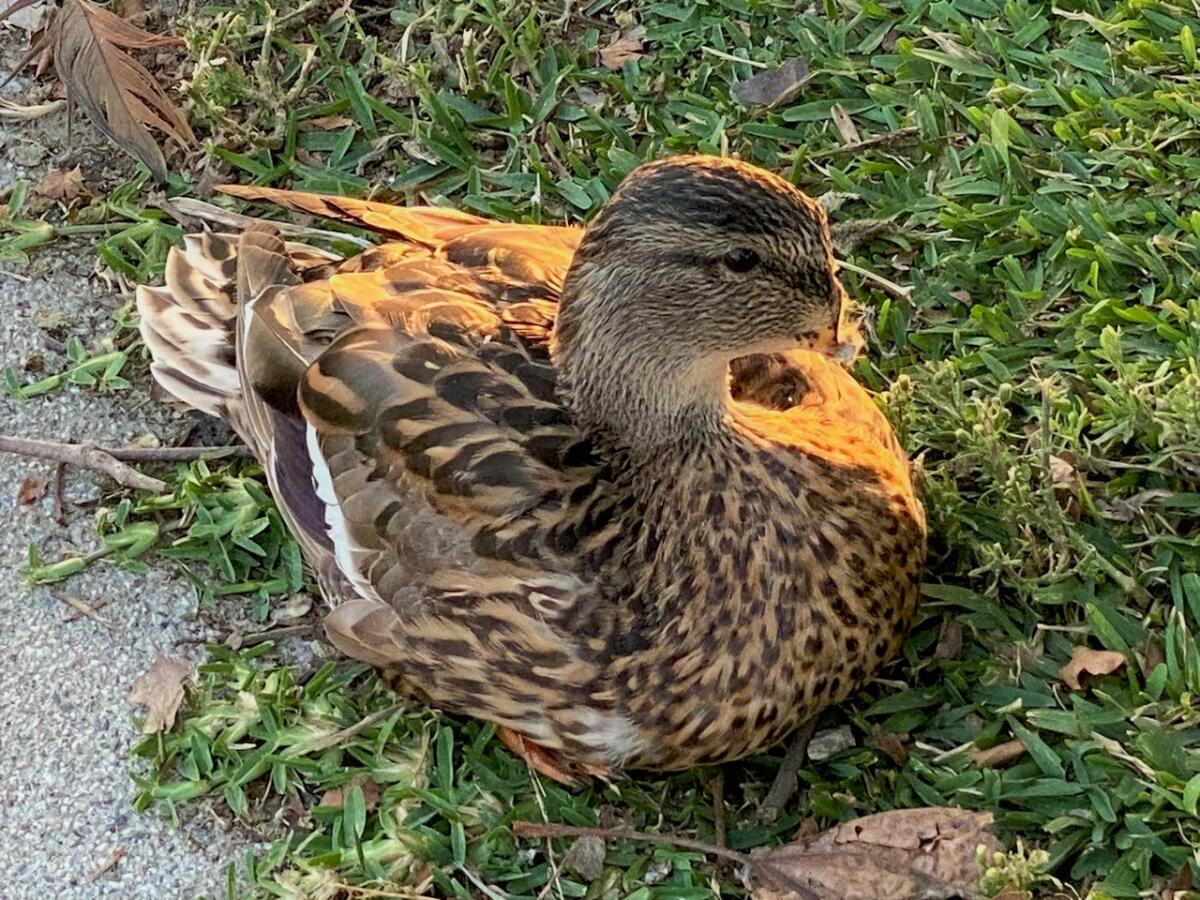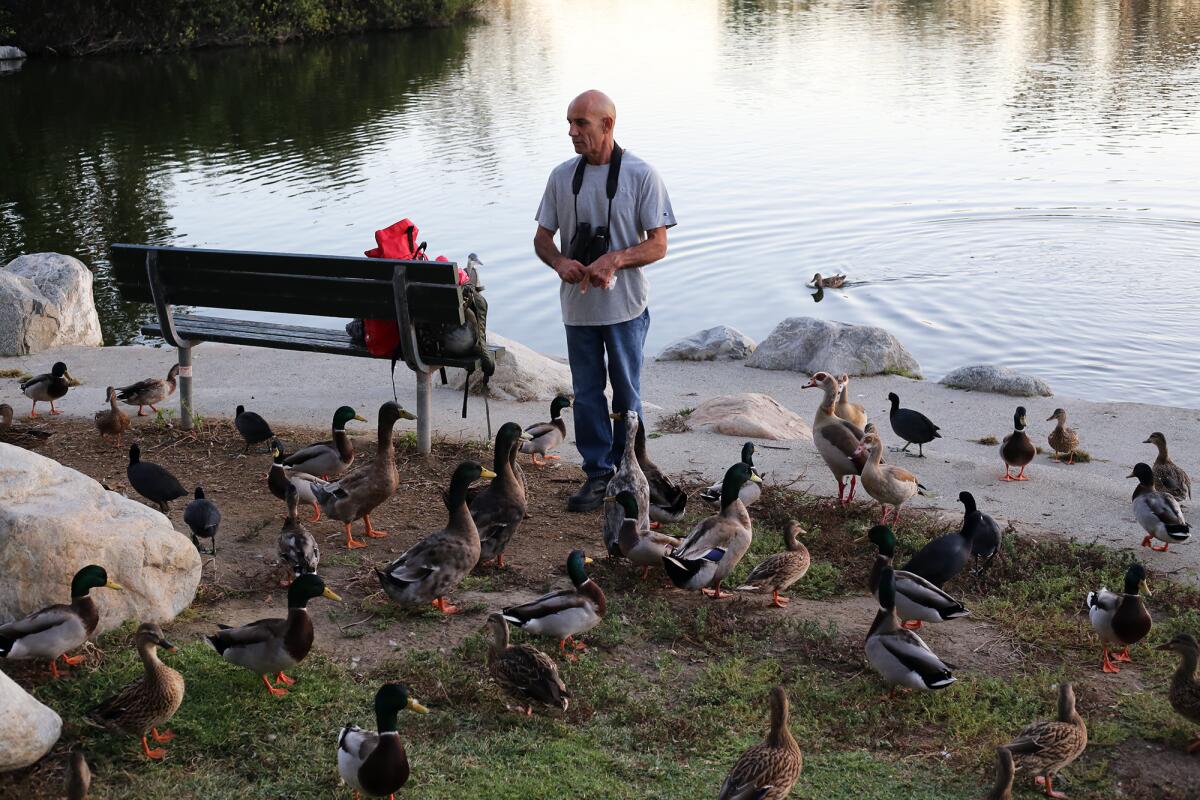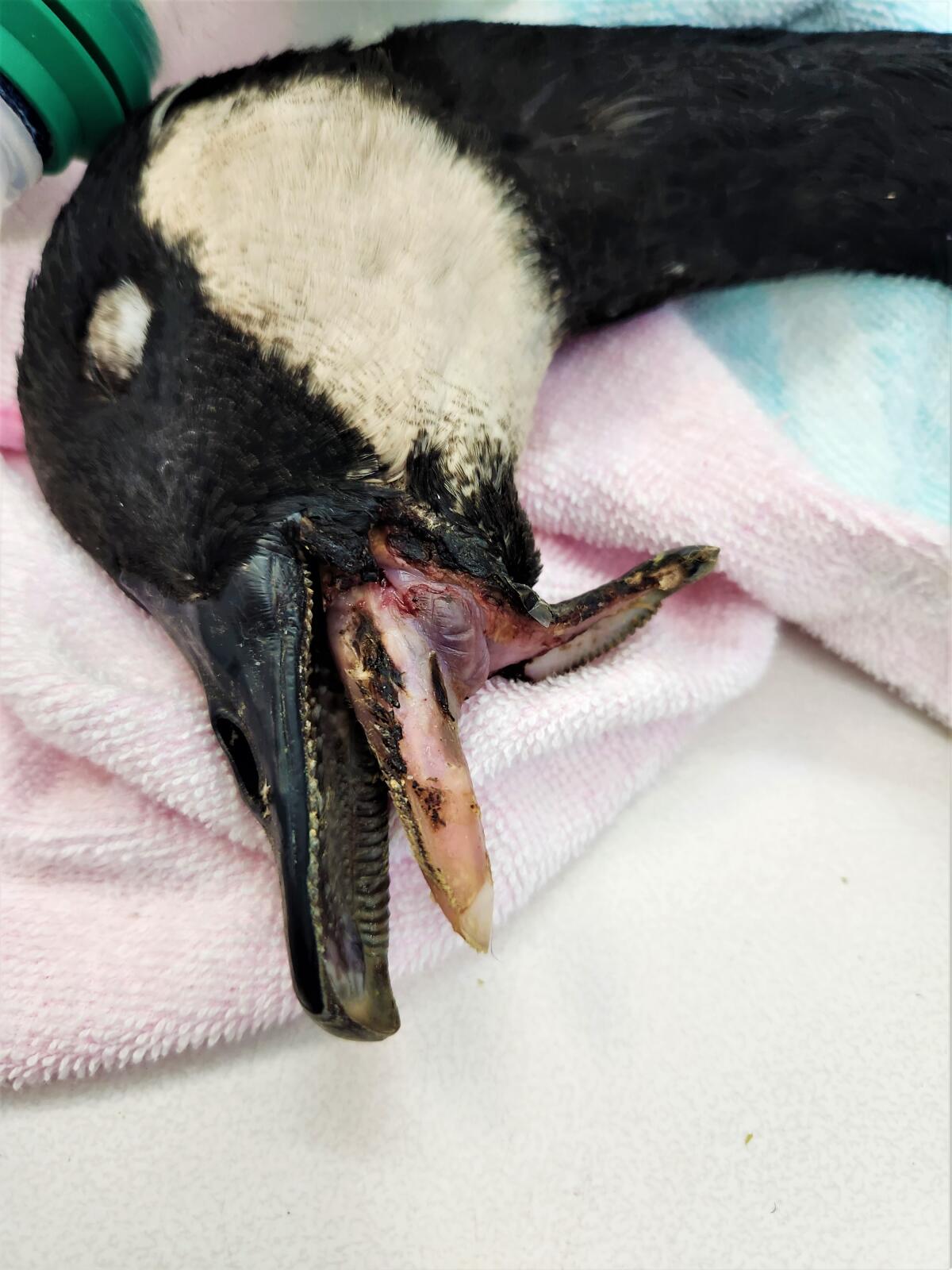Fish & Wildlife officials blame duck mutilations on snapping turtles, but some are skeptical

- Share via
State wildlife officials investigating the cause of waterfowl found at Mile Square Regional Park with mutilated bills say the injuries appear to be the work of snapping turtles, though some animal advocates are doubtful.
Tim Daly, a regional information officer for California’s Department of Fish & Wildlife, confirmed Wednesday the department’s Law Enforcement Division collected five ducks and geese from the Fountain Valley park over a one-year period and sent them to a wildlife health laboratory in Sacramento.
Three of the birds were collected in July and August of 2022, while the remaining waterfowl were transported to the lab this summer for necrospies. All of the animals had either died from their injuries or been previously euthanized.
“There were enough reports coming in, whether from the public or the media, that the injuries seemed odd enough that it might be concluded that it was a person harming these ducks,” Daly said. “It appears the cause of injuries to the birds’ beaks were most likely a snapping turtle.”
Visitors to the county park say they’ve reported dozens of severed duck bills and fishing line-entangled birds to no avail, so are taking matters into their own hands. Meanwhile, an investigation ensues.
Illegal in California without a permit, snapping turtles are native to North America’s East Coast. They can grow upward of 200 pounds and are known for strong, triangular-shaped jaws that snap shut like a spring-loaded trap.
Alligator snapping turtles are ambush predators who lie on the bottom of a lake and lure prey into their open, waiting maws, while smaller common snapping turtles walk on land and can aggressively lunge and snip at prey. Females get especially combative in summer when looking to lay eggs.
“They are voracious, aggressive eaters that have been known to eat baby alligators. They also eat other turtles,” said Fullerton resident John Kim, who heads the California Turtle & Tortoise Club and its Orange County chapter. “They will eat anything that crosses their path, which is why they’re illegal in California.”
Kim further said snappers are known for going after a bird’s feet, although residents who watch the Mile Square Park birds say they’ve never seen those sorts of injuries.

Fountain Valley bird enthusiast and hobbyist wildlife photographer Robert Di Massa, who visits the park daily and was on site Wednesday evening, said he’s never seen snapping turtles there.
“That’s what I’ve been told a dozen times from every other person, because that’s what someone told them. Someone at the top put that down the chain, and then that’s what everyone goes with,” he said by phone. “[But] I haven’t seen one yet. and I’ve looked low down under the brush with binoculars and a scope.”
Debbie McGuire, executive director of the Wetlands & Wildlife Care Center in Huntington Beach, has treated several Mile Square ducks and says there are two distinct types of injuries — bills are either ripped or cut off, or the top or bottom half of a bill is broken on both sides near the jawline.

“How would a turtle bite make it break like that without part of the beak being missing?” she posed.
McGuire recalled an incident about a year ago, when workers were repairing the lake at Mile Square Park with a backhoe and dredged up a snapping turtle and a soft-shelled turtle from the muddy bottom. But she still disputes CDFW’s recent findings.
“I totally disagree, but I do think it’s a plausible explanation for some of the injuries,” she said.
Equally troubling about the possibility of snappers at Mile Square Park is the jurisdictional quagmire they present.
Just like waterfowl, which don’t technically belong to the park, there is no one agency responsible for the care and keeping, or removal, of wildlife at the park.
Alexa Pratt is a spokeswoman for Orange County’s Community Resources Division, which oversees the county’s parks and animal care efforts. Pratt said Tuesday snapping turtles aren’t within the department’s purview.
“We’re glad that snapping turtles were the cause and not any foul play,” she said. “But because they’re an illegal species, [animal care officers] don’t take in any snapping turtles. The officer would call Fish & Wildlife.”
Daly said Friday while the department might get involved if someone were bitten by a snapping turtle, there are not enough officers on staff to handle local animal management issues.
“We’re happy to work with O.C. Parks on solutions, advice and safety tips, etc.,” he said Friday. “But the message from us is the importance of not dumping an illegal, potentially harmful species into public lakes. Though it might seem harmless to you, it might present a harmful situation to animals or others, which appears to be the case here.”
Anyone who discovers an injured animal at Mile Square Regional Park or any other county property is asked to call O.C. Animal Care’s 24-hour line at (714) 935-6848.
All the latest on Orange County from Orange County.
Get our free TimesOC newsletter.
You may occasionally receive promotional content from the Daily Pilot.





